Eelgrass Habitat Protection & Vessel Monitoring
Eelgrass (Zostera marina) may not look like much, but it serves as an integral element of our marine ecosystem in the San Juan Islands and throughout the Salish Sea. This remarkable flowering plant (as opposed to far more abundant varieties of algae typically associated with temperate marine ecosystems) is a keystone species, creating invaluable habitat upon which numerous species depend, from Pacific Herring to Dungeness Crab. Even our beloved Southern Resident Killer Whales have an indirect yet irrefutable connection to eelgrass.
The decline of eelgrass beds throughout our region is well documented and significant cause for concern, and San Juan County is continuously exploring opportunities to protect and rehabilitate beds throughout the islands.
One of the more overlooked threats to eelgrass is boats at anchor, as both eelgrass and anchored boats seek roughly the same conditions: 10-30ft of water with a sandy bottom. As a result, unmanaged anchoring practices can quickly and destructively damage eelgrass habitat.
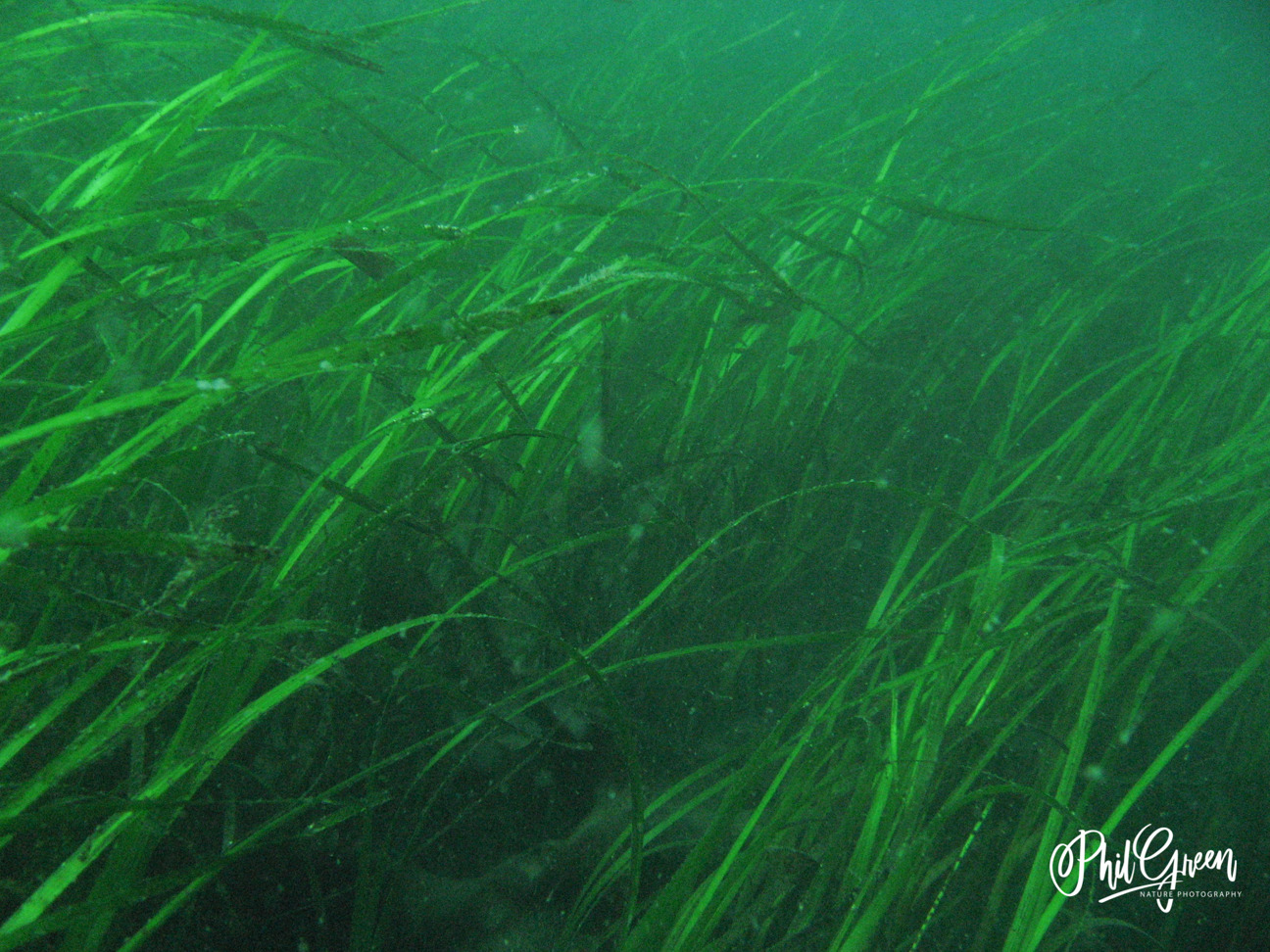
Eelgrass (Zostera marina)
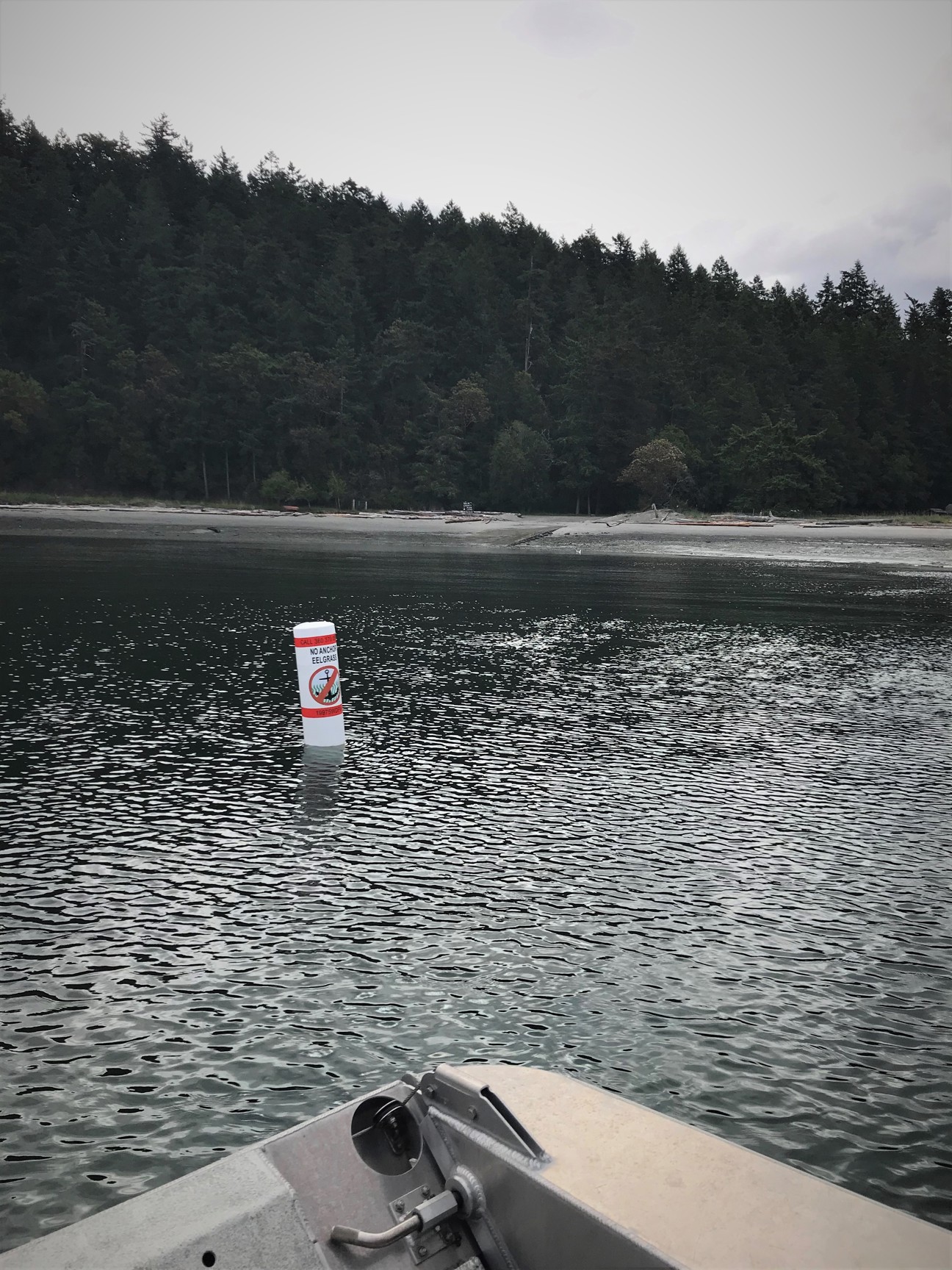
The MRC is working to protect eelgrass beds in desirable anchoring locations, such as Odlin County Park (Lopez Island), Westcott Bay (San Juan Island), Blind Bay (Shaw Island), and Eastsound (Orcas Island), through the employment of voluntary anchor-out zones.
To determine the long-term effectiveness of these protection zones, we will monitor the sites for boat presence, behavior, and compliance of the voluntary protection zones during the regular boating season. At Bell Point (Westcott Bay), Blind Bay, and Eastsound, the MRC will monitor pre- and post-installation, providing the opportunity for data to be compared between the two time periods.
Anchor-out buoys have already been installed at the Odlin Park protection zone, where the MRC will continue to monitor compliance, as well as conduct community and boater outreach through local and social media outlets to raise awareness and motivate unified boater best practice guidelines.
Aerial Surveys for Vessel Density
Healthy, flourishing eelgrass beds are vital to Puget Sound recovery but are in decline in the San Juan Islands. Eelgrass beds provide nursey, shelter, and food to ecologically, economically, and culturally important species and support a variety of ecosystem services including improved water quality, sediment stabilization, and carbon sequestration that help build coastal resilience to impacts of climate change. Boats are one of the current anthropogenic stressors to eelgrass due to physical disturbance and damage to eelgrass meadows, resulting in meadow fragmentation and accelerating decline in bed health and size. Despite high levels of boating in San Juan County (SJC), boater related impacts on eelgrass remain poorly measured here and elsewhere in Puget Sound. COVID travel restrictions of 2020 resulted in an increase in boating activity in SJC, raising the urgency of assessing boater impacts on eelgrass habitats and tribal treaty resources.
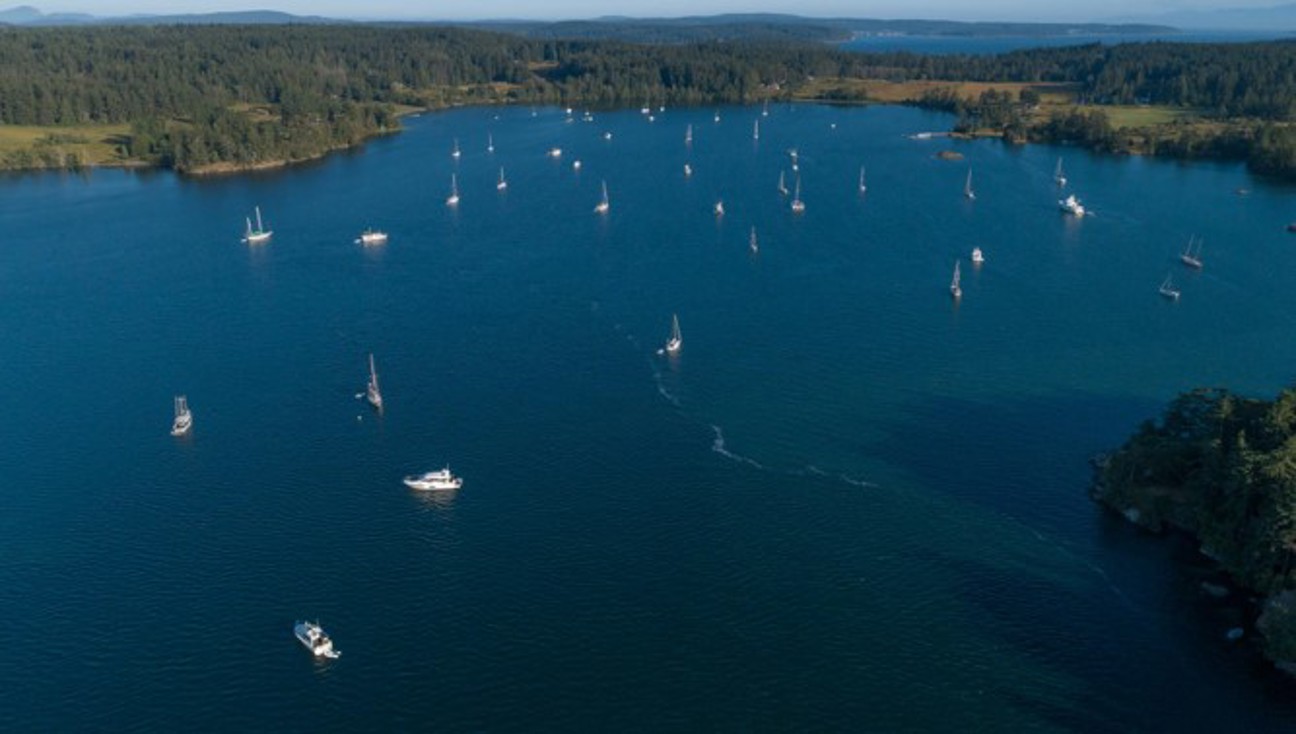
Boats in Blind Bay. Photo by Carl Davis
This project is the first to identify areas of high boater density in the San Juan Islands using aerial survey line transect methodology. The results of this project will be used to compare areas of high vessel density with sensitive and culturally and economically important marine habitats, including eelgrass meadows, forage fish spawning habitats, and shellfish beds. The objectives of this project are to:
- Identify impact hotspots and prioritize sites for protection and/or restoration.
- Understand the nexus between boater presence and activity and eelgrass habitat health.
To achieve these objectives, systematic line-transect aerial surveys were flown May through September 2024 to capture peak boating presence in the islands. These data will allow a spatial comparison with existing habitat data to identify impact hotspots. The expected outcomes include a spatial assessment of impact that can be used to inform future management goals and a prioritization of sites for protection and/or restoration. This project will provide a model strategy for implementation to advance efforts to enhance marine ecological and coastal resilience in the Puget Sound region.
Click Here for the Vessel Assessment Technical Report, Jefferson et al., 2024
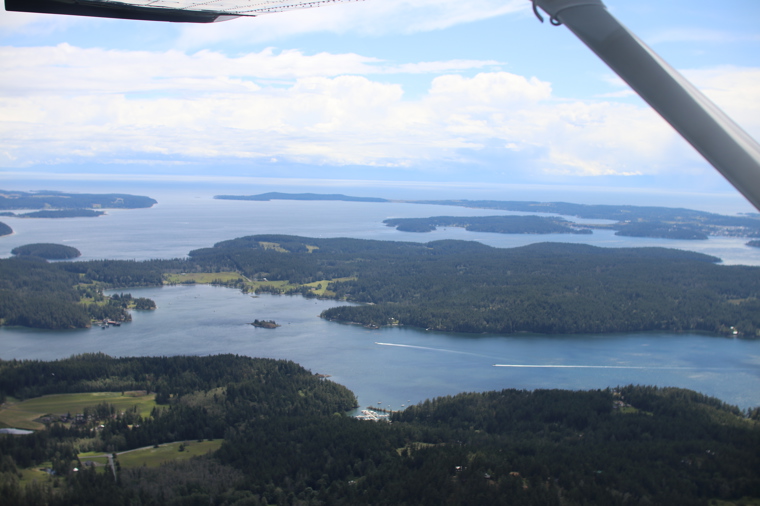
Aerial Surveys: Counting Boats from Above
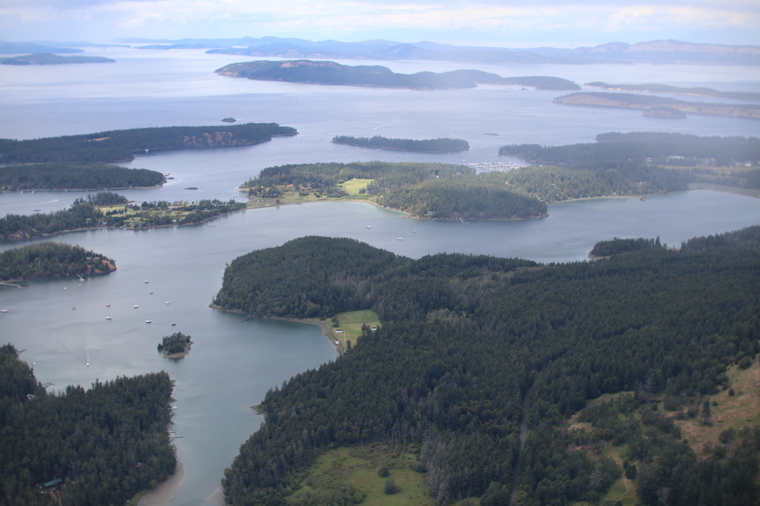
Photos by Frances Robertson
This project received National Oceanic & Atmospheric Administration (NOAA) federal funding that was administered through the Northwest Straits Commission's One Time Grant Program (OTGP).